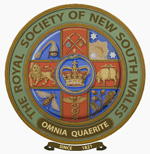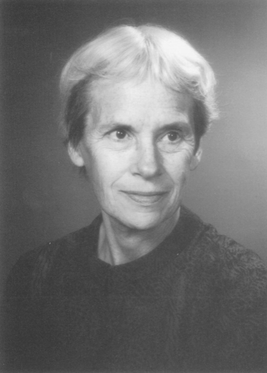
The Royal Geographical Society (with the Institute of British Geographers), often shortened to RGS, is a learned society and professional body for geography based in the United Kingdom. Founded in 1830 for the advancement of geographical sciences, the society has 16,000 members, with its work reaching the public through publications, research groups and lectures.

The Royal Society of Canada, also known as the Academies of Arts, Humanities, and Sciences of Canada, is the senior national, bilingual council of distinguished Canadian scholars, humanists, scientists, and artists. The primary objective of the RSC is to promote learning and research in the arts, the humanities, and the sciences. The RSC is Canada's national academy. It promotes Canadian research and scholarly accomplishment in both official languages, recognizes academic and artistic excellence, and advises governments, non-governmental organizations, and Canadians on matters of public interest.

The American Geophysical Union (AGU) is a 501(c)(3) nonprofit organization of Earth, atmospheric, ocean, hydrologic, space, and planetary scientists and enthusiasts that according to their website includes 130,000 people. AGU's activities are focused on the organization and dissemination of scientific information in the interdisciplinary and international fields within the Earth and space sciences. The geophysical sciences involve four fundamental areas: atmospheric and ocean sciences; solid-Earth sciences; hydrologic sciences; and space sciences. The organization's headquarters is located on Florida Avenue in Washington, D.C.
Society for Industrial and Applied Mathematics (SIAM) is a professional society dedicated to applied mathematics, computational science, and data science through research, publications, and community. SIAM is the world's largest scientific society devoted to applied mathematics, and roughly two-thirds of its membership resides within the United States. Founded in 1951, the organization began holding annual national meetings in 1954, and now hosts conferences, publishes books and scholarly journals, and engages in advocacy in issues of interest to its membership. Members include engineers, scientists, and mathematicians, both those employed in academia and those working in industry. The society supports educational institutions promoting applied mathematics.

The Royal Society of New South Wales is a learned society based in Sydney, Australia. The Governor of New South Wales is the vice-regal patron of the Society. It is the oldest learned society in the Southern Hemisphere.

The European Geosciences Union (EGU) is a non-profit international union in the fields of Earth, planetary, and space sciences whose vision is to "realise a sustainable and just future for humanity and for the planet". The organisation has headquarters in Munich, Germany. Membership is open to individuals who are professionally engaged in or associated with these fields and related studies, including students, early career scientists and retired seniors.

The Mineralogical Society of America (MSA) is a scientific membership organization. MSA was founded in 1919 for the advancement of mineralogy, crystallography, geochemistry, and petrology, and promotion of their uses in other sciences, industry, and the arts. It encourages fundamental research about natural materials; supports the teaching of mineralogical concepts and procedures to students of mineralogy and related arts and sciences; and attempts to raise the scientific literacy of society with respect to issues involving mineralogy. The Society encourages the general preservation of mineral collections, displays, mineral localities, type minerals and scientific data. MSA represents the United States with regard to the science of mineralogy in any international context. The Society was incorporated in 1937 and approved as a nonprofit organization in 1959.

The Institute of Materials, Minerals and Mining (IOM3) is a British engineering institution with activities including promotion of the development of materials science.
The American Society for Cell Biology (ASCB) is a professional society that was founded in 1960.
The Geological Association of Canada (GAC) is a learned society that promotes and develops the geological sciences in Canada. The organization holds conferences, meetings and exhibitions for the discussion of geological problems and the exchange of views in matters related to geology. It publishes various journals and collections of learned papers dealing with geology.

The Institute of Physics and Engineering in Medicine (IPEM) is the United Kingdom's professional body and learned society for physicists, engineers and technologists within the field of medicine, founded in 1995, changing its name from the Institution of Physics and Engineering in Medicine and Biology (IPEMB) in 1997. The Institute is governed by an elected Board of Trustees reporting to which are the Science, Research and Innovation Council and the Professional and Standards Council. The councils have operational responsibility for scientific and professional aspects of the Institute's work, respectively. Beneath the councils is a substructure of committees, groups and panels of members, which undertake the work of the Institute.

The Geochemical Society is a nonprofit scientific organization founded to encourage the application of chemistry to solve problems involving geology and cosmology. The society promotes understanding of geochemistry through the annual Goldschmidt Conference, publication of a peer-reviewed journal and electronic newsletter, awards programs recognizing significant accomplishments in the field, and student development programs. The society's offices are located on the campus of the Carnegie Institution for Science in Washington, DC.
The European Society for Engineering Education an organisation for engineering education in Europe. Commonly known as SEFI, an acronym for its French name, Société Européenne pour la Formation des Ingénieurs, it is also known in German as the Europäische Gesellschaft für Ingenieur-Ausbildung. SEFI was founded in Brussels in 1973 and has more than 300 members in 40 countries. It promotes information exchange about current developments in the field of engineering education, between teachers, researchers and students in the various European countries.

The Genetics Society is a British learned society. It was founded by William Bateson and Edith Rebecca Saunders in 1919 and celebrated its centenary year in 2019. It is therefore one of the oldest learned societies devoted to genetics. Its membership of over 2000 consists of most of the UK's active professional geneticists, including researchers, teachers and students. Industry and publishing are also represented in the membership.
The American Physiological Society is a non-profit professional society for physiologists. It has nearly 10,000 members, most of whom hold doctoral degrees in medicine, physiology, or other health professions. Its mission is to support research and education in the physiological sciences. The society publishes 16 peer-reviewed journals, sponsors scientific conferences, and sponsors awards to further this mission.

Janet Vida Watson FRS FGS (1923–1985) was a British geologist. She was a professor of Geology at Imperial College, a rapporteur for the International Geological Correlation Program (IGCP) (1977–1982) and a vice president of the Royal Society (1983–1984). In 1982 she was elected president of the Geological Society of London, the first woman to occupy that position. She is well known for her contribution to the understanding of the Lewisian complex and as an author and co-author of several books including Beginning Geology and Introduction to Geology.

The International Association for Mathematical Geosciences (IAMG) is a nonprofit organization of geoscientists. It aims to promote international cooperation in the application and use of mathematics in geological research and technology. IAMG's activities are to organize meetings, issue of publications on the application of mathematics in the geological sciences, extend cooperation with other organizations professionally concerned with applications of mathematics and statistics to the biological sciences, earth sciences, engineering, environmental sciences, and planetary sciences. IAMG is a not for profit 501(c)(3) organization.
The Operations Research Society of South Africa (ORSSA) is the national, professional body tasked with furthering the interests of those engaged in, or interested in, operations research (OR) activities in South Africa. The society is affiliated to the International Federation of Operational Research Societies and its subgrouping, the Association of European Operational Research Societies, and is the main national society for Operations Research in the country.

The Geological Society of Sri Lanka is the premier professional forum dedicated to promotion of Geology/Geological Sciences in Sri Lanka. The GSSL is the platform for Sri Lankan Geologists in both academia and industries to join together and share their knowledge, research findings and experience while disseminating knowledge in geological sciences to the general public in Sri Lanka.

The International Geosynthetics Society (IGS) is an engineering professional society focused on the field of geosynthetics, which are polymeric materials used in geotechnical engineering. The IGS describes itself as "a learned society dedicated to the scientific and engineering development of geotextiles, geomembranes, related products, and associated technologies." It was founded in Paris in 1983 as the International Geotextile Society and is a member of the Federation of International Geo-Engineering Societies, along with the International Society of Soil Mechanics and Geotechnical Engineering (ISSMGE), International Society for Rock Mechanics and Rock Engineering (ISRM), and International Association for Engineering Geology and the Environment (IAEG).













